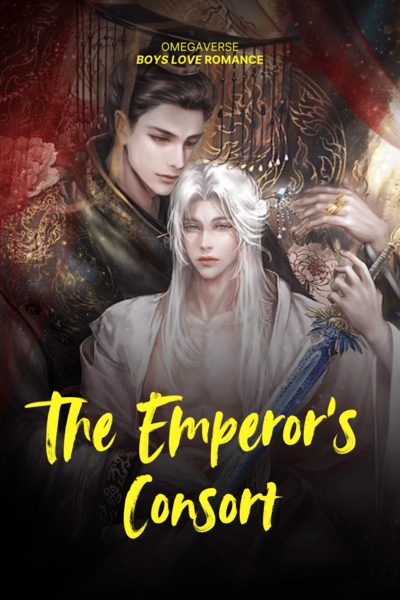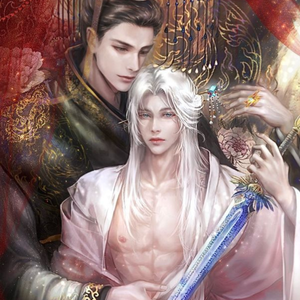The fall of the capital was swift and brutal.
Valen’s forces surged through the palace, cutting down the last remnants of resistance with ruthless efficiency. By dawn, the imperial banners had been torn down, replaced by Valen’s crimson and black standard.
In the throne room, Valen sat upon the emperor’s chair, his presence commanding and unyielding. The council chambers, once a place of strategy and debate, had become a gallery of cowed nobles and military leaders. Those who had survived the coup knelt before him, their eyes lowered in submission.
“The era of tyranny has ended,” Valen declared, his voice ringing through the hall. “The empire belongs to its people now. And I will see to it that they are ruled with strength and justice.”
The crowd murmured in uneasy agreement, though fear lingered in their eyes.
“Burn the records of Kairos’s reign,” Valen commanded, turning to his advisors. “Erase his name from history. Let the people remember only that he was unfit to rule.”
His orders were carried out with ruthless precision. Statues of Kairos were torn down, his portraits defaced, and his name struck from official records. Within days, it was as though the young emperor had never existed.
Far from the ruined capital, in a small cottage nestled deep within the eastern forest, Kairos lay on a simple wooden bed, his breaths shallow and uneven.
Soren sat beside him, his hands stained with blood as he worked to clean and dress the emperor’s wounds. The injuries were severe—a deep gash along his side, bruises blooming across his skin—but Soren had managed to stop the bleeding.
“Stay with me,” Soren murmured, his voice trembling as he pressed a damp cloth to Kairos’s fevered brow. “You’re not allowed to die, do you hear me?”
Kairos stirred, his eyelids fluttering open. His gaze was unfocused, and his voice was barely a whisper. “Soren...”
“I’m here,” Soren said, his chest tightening as he gripped Kairos’s hand. “You’re safe now.”
A faint smile tugged at Kairos’s lips. “Safe,” he echoed, the word heavy with irony.
The days passed in a haze of worry and exhaustion. Soren tended to Kairos with a singular focus, ignoring his own fatigue and the gnawing ache of grief that had settled in his chest.
He had tried not to think about the capital—about the friends and allies they had left behind, the soldiers who had given their lives for a cause that now seemed hopeless. But the weight of it all was impossible to ignore.
One afternoon, as Soren sat by the fire, stirring a pot of thin broth, Kairos’s voice broke the silence.
“You should have left me,” he said, his tone flat.
Soren turned, his green eyes sharp with indignation. “Don’t say that.”
Kairos’s gaze was distant, his face pale against the rough linens of the bed. “They would have stopped hunting you if you’d let me die. Valen would have no reason to pursue you.”
“And you think that makes it okay?” Soren snapped, his voice shaking. “You think I would have just walked away and let you—” He stopped, his hands curling into fists. “No. I couldn’t do that.”
Kairos’s lips twitched into something resembling a smile, though it didn’t reach his eyes. “You’re a fool.”
“Maybe I am,” Soren said, his voice softer now. “But I’d rather be a fool than a coward.”
Kairos closed his eyes, his expression unreadable. “The empire is gone, Soren. There’s nothing left to fight for.”
“That’s not true,” Soren said firmly, moving to sit beside him. “You’re still here. That means there’s still hope.”
Kairos didn’t respond, but the faintest flicker of something—doubt, or perhaps longing—crossed his features.
That night, as the forest outside the cottage swayed in the cool breeze, Soren sat by the window, staring out at the stars.
The grief he had been suppressing finally broke free, tears slipping down his cheeks as he thought of everything they had lost. The capital, the loyal soldiers, Lady Elira—gone, or worse, captured by Valen.
But even as the weight of his sorrow threatened to crush him, Soren refused to give in to despair.
Kairos was still alive. And as long as he was breathing, Soren would fight to protect him.
In the days that followed, Kairos began to regain his strength, though his recovery was slow. Soren hunted small game in the forest and foraged for berries and herbs, doing his best to keep them fed and cared for.
He spoke often, telling Kairos stories of his childhood in the village—of simpler times, before the palace and the rebellion had upended their lives.
“You’d have hated it,” Soren said one evening, a small smile tugging at his lips. “The fields were muddy, the winters were brutal, and the food was... let’s call it ‘unremarkable.’”
Kairos, propped up on a pile of blankets, arched a brow. “And yet, you survived.”
“Barely,” Soren replied, his tone teasing. “But it wasn’t all bad. We had this old oak tree in the center of the village. My siblings and I used to climb it when we weren’t working. It felt like the highest place in the world.”
Kairos’s expression softened, and for a moment, the weight of their current reality seemed to fade.
As the days turned into weeks, the bond between them deepened. Despite Kairos’s tendency to retreat into himself, there were moments when his guard lowered—when he let Soren see the man behind the mask.
One evening, as they sat by the fire, Kairos finally spoke of the fall of the capital.
“I failed them,” he said quietly, his gaze fixed on the flames.
“You didn’t fail,” Soren said. “You were betrayed.”
Kairos shook his head. “The responsibility was mine. I let Valen gain too much power. I trusted the wrong people.”
“You trusted because you cared,” Soren said softly. “And that’s not a weakness, Kairos. It’s what makes you different from him.”
Kairos looked at him, his ice-blue eyes searching Soren’s face. “And what has it gotten me?”
Soren met his gaze, his voice steady. “It’s gotten you me. And I’m not going anywhere.”
Kairos didn’t respond, but his expression shifted—just slightly, enough for Soren to see the gratitude beneath the surface.
The empire was in ruins, and the road ahead was uncertain. But in the quiet refuge of the forest, Soren and Kairos began to piece together the fragments of their lives, determined to find a way forward.
Because while the capital had fallen, the emperor had not.
And as long as they drew breath, they would fight to reclaim what had been lost.











Comments (0)
See all